I am getting very short of time as all 16 bees have to be in the post today along with a small book, luckily my painting is slightly ahead of my posting. I was so caught up in discovering the “other bees” that I almost forgot to include a Honey Bee in this set.
The trouble with writing about the Honey Bee is where to start and when to finish. Should it be about their incredibly organised society, their complicated navigation systems, the delightful waggle dance, or their gift to us of delicious honey.. and that’s without even considering honey bee lore, superstition and symbolism. All that will have to wait for next year.
Hmmm.. I am afraid that this bee thing will not come to an end at Christmas, as I now have a couple more projects to do and will be getting back to my bee books, cards and more paintings.
But I may take a short break.. unlike the Florida Honey Bees who I saw only yesterday, busy in the Rose Garden at Leu. With flowers still abundant and temperatures mild they carry on regardless. Northern bees are not so lucky and may have to overwinter in some very harsh conditions. Today I am reading of heavy snow in the UK and thinking about friends, family and bees.
Winter Snuggling for the Honey Bee.
Snowed up, frozen conditions are not good for bees. Apart from hoping for a warm break, warm enough for the bees to leave the hive to attend their own call of nature, there is the problem of keeping warm.
Hives can be wrapped and insulated but the bees have to work hard at keeping warm.
Here is a seasonal passage from “Winter for the Bee-Keeper” a chapter from Stephens Buchman’s excellent “Letters from the Hive”.
“Throughout the long cold months, the bees congregate in what is called the winter cluster, a tight sphere of bee bodies forty thousand strong usually located near their stored cache of honey. They are literally huddling to keep warm. Its called thermoregulation, and the bees are expert at it.
By eating honey then shivering their flight muscles without moving their wings they can raise their internal body temperature significantly.
Revving their mini engines keeps not only individual bees warm but their neighbors as well. The temperature will not dip below 68 degrees F within the cluster. When bees in the outermost layers start feeling chilly they push their way deep into the centre, the warmest part of the cluster. Wouldn’t you?”A snowy UK beehive from the Derbyshire Daisybank Apiaries, in the UK here.
I know I have some beekeepers amongst my readers, I wonder how you are doing this winter? I am off to the post office now… all we have here is heavy rain…____________________________________________________
Bee No16: the Honey Bee: Apis mellifera
Watercolour on Arches HP 300, image size 3.5 inches.

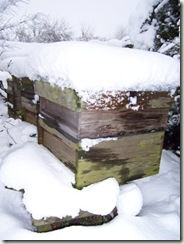
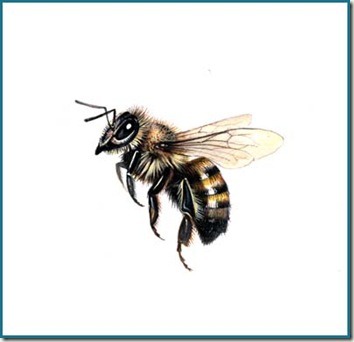
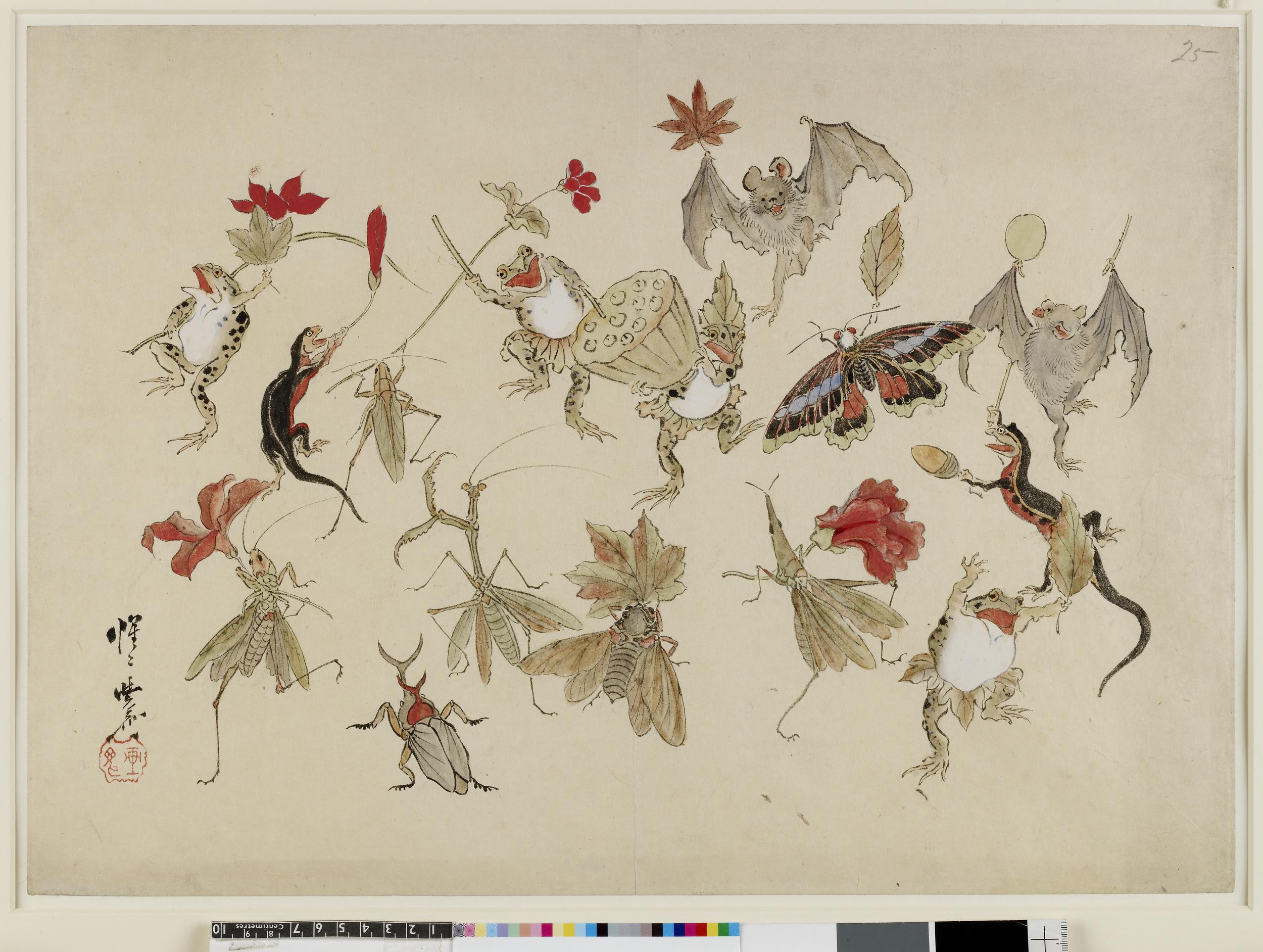
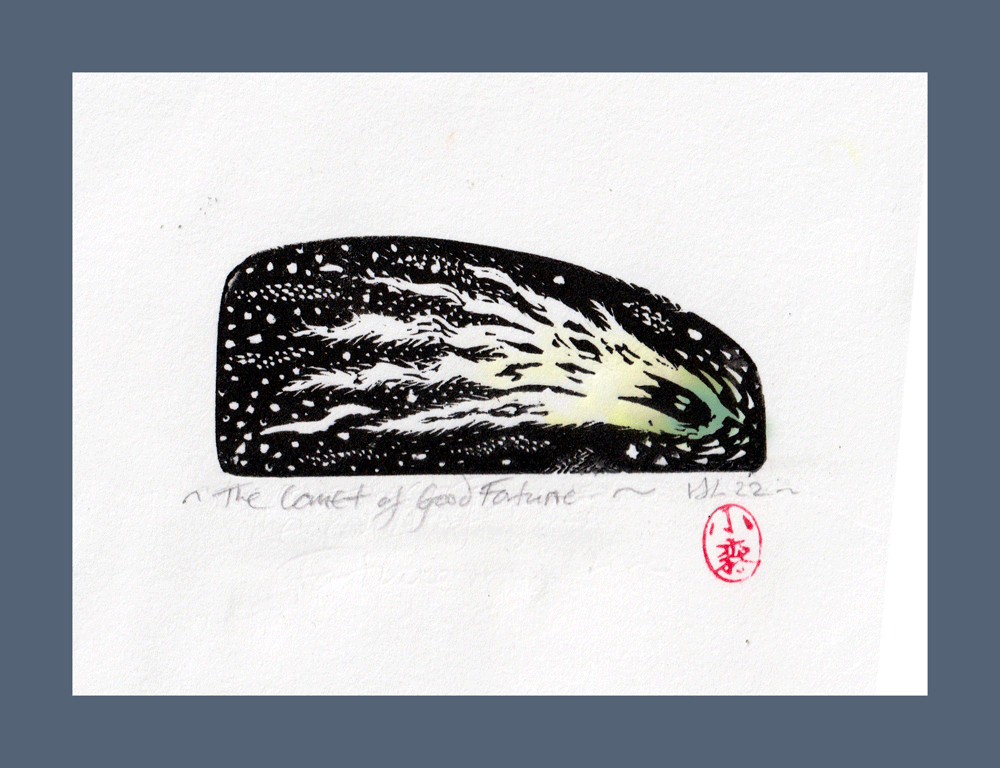
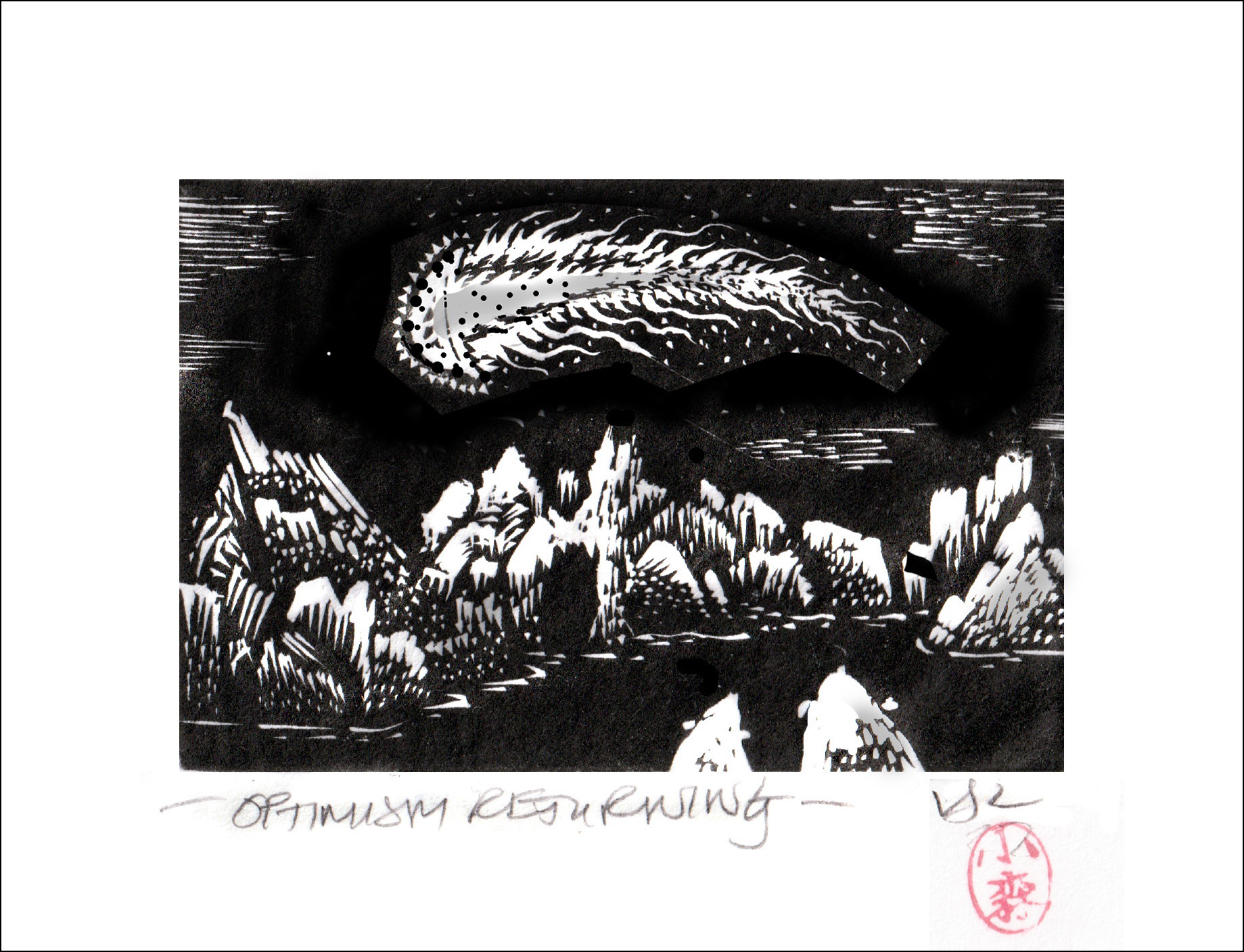
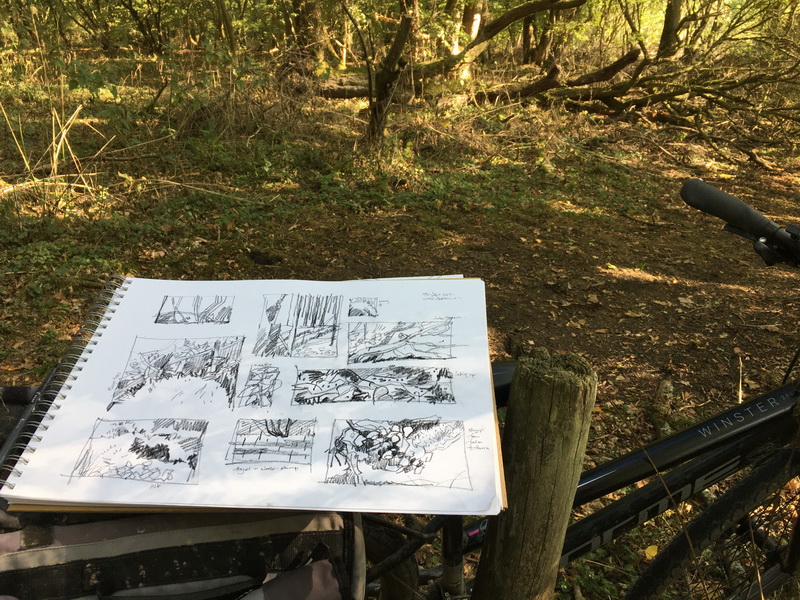

Daddy always kept bees. Divine little creatures!
I love bees, both wild bumbles and honeybees. We go through a lot of creamed honey here in the run of a year. Hubby swears it's what keeps him healthy.
my bees are still buzzing through their 3rd winter, snowed in deep. fingers crossed, like always!